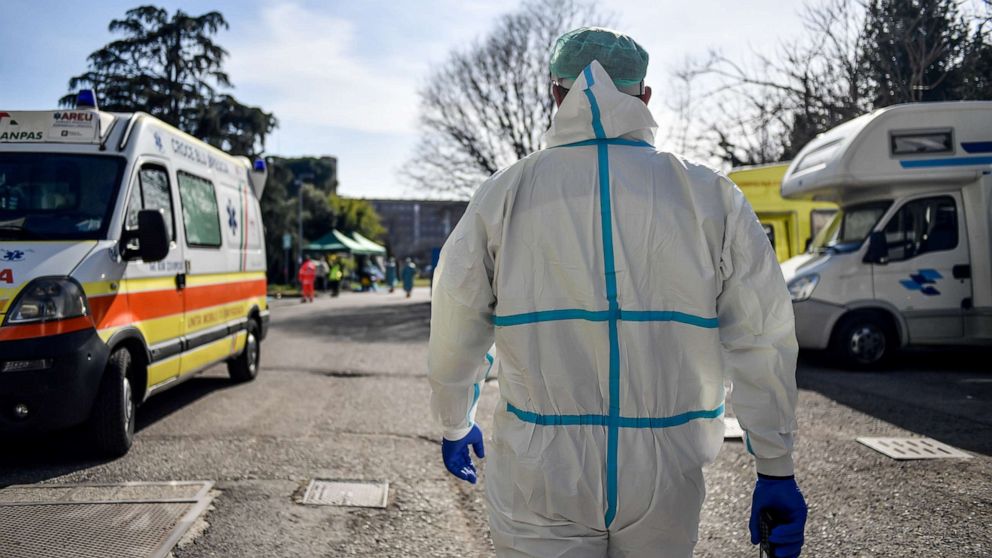As the number of coronavirus cases rises, why is Italy being hit so hard?
The country of Italy is on lockdown as the number of cases of COVID-19, the official name for the novel coronavirus, soars.
With more than 10,000 cases and counting, Italy has the second-highest reported death toll and number of confirmed infected cases, behind only China.
With 630 deaths, Italy’s death toll is significantly higher than the next three hardest-hit nations combined, with deaths in Iran, France and South Korea totaling under 380.
So what has put Italy and its people at higher risk for severe disease? The answer is multifaceted.
To start, part of the answer may lie in the age distribution of Italy's population. Italy has an older population with a greater percentage of adults over the age of 65 than the U.S. The Centers for Disease Control cautions that older adults may be at risk for more serious COVID-19 illness.
Data from China, where the majority of COVID-19 deaths have occurred, shows that about 80% of adults that have died were over the age of 60.

"We do know that the mortality rate associated with coronavirus infection is increased in those aged 60 years and older, and increased each decade thereafter," said Dr. Sarah Banks, an infectious disease physician at The Hospital of Central Connecticut. "We also know that underlying medical conditions also play a role in morbidity and mortality -- however to what degree is still being looked at."
Another risk factor may relate to smoking. COVID-19 is a respiratory disease that can lead to pneumonia, respiratory failure and, in the worst cases, death. Smoking is known to impair lung function and the immune system, contributing to more severe respiratory illnesses. A recent study suggests that more than 21% of Italians are smokers, compared to less than 14% in the U.S.
An additional risk factor could be related to local customs. The CDC has urged the use of social distancing as a precaution against the spread of COVID-19 -- but prior to this outbreak, the common custom in Italy was to greet friends and loved ones with a kiss on both cheeks.
"We do know that the virus is transmitted from person to person through droplets and possibly through contaminated surfaces," said Banks. "Social isolation is certainly being advocated by many experts around the globe in an effort to curb the spread of the virus."

Dr. Banks said that a final reason the mortality rate in Italy appears to be so high could be statistical.
"If asymptomatic or minimally symptomatic patients are not being tested, this will also skew the numbers we are seeing and increase the rates of adverse outcomes," she said.
Experts say it's difficult to predict if the U.S. will fare better than Italy as the virus runs its course.
"Based on the numbers that we are seeing from various countries, it does appear that the U.S. is behind several other countries in the number of cases that are being tested here," Banks said. "If we are unable to make an accurate diagnosis due to limited testing availability, this will certainly skew the numbers that we are seeing. As commercialized testing is being rolled out currently, I think we will see a shift in these numbers."
Melanie Graber, M.D. is an internal medicine resident at the University of Connecticut School of Medicine and Angela N. Baldwin, M.D., M.P.H., is a pathology resident at Montefiore Health System in the Bronx. They are both contributors in the ABC News Medical Unit.




